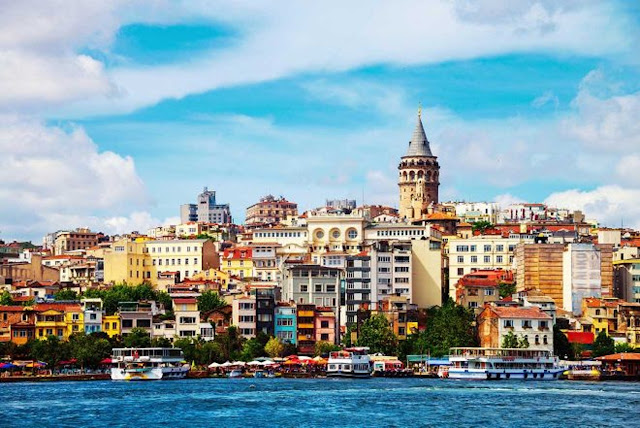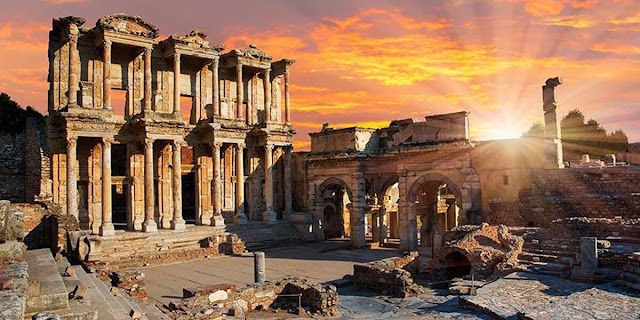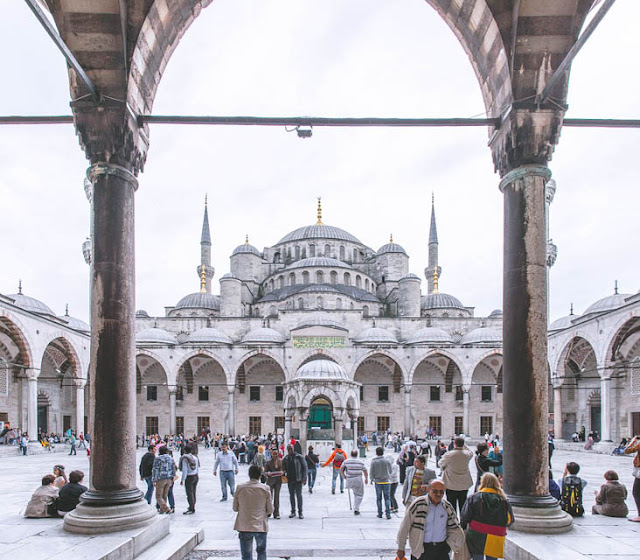LGBT Rights in Turkey: What Travelers Should Know Before Going Turkey
LGBT Rights in Turkey: What Travellers Should Know Before Going Turkey
Turkey has some truly amazing places to visit – there are few places that capture the imagination more than Istanbul, where East meets West; the coastline of the Turquoise Coast in the south is truly stunning, and the landscape of Cappadocia is like something from a fantasy novel.
However, it’s important to be aware that Turkey, for all its liberal aspects and its cosmopolitan cities, is an Islamic country, and one that is moving closer to traditional Middle Eastern values on a daily basis. This is a similar situation to gay rights in Indonesia, and Malaysia, and shows no signs of letting up. Unfortunately, this is having a very real and visible effect on LGBT rights in Turkey that gay travellers to the area should take into account when planning a trip.
It is such a beautiful country that the LGBT community should feel excited to visit it, but it’s vital to keep the religious and political situation in mind. Since the attempted coup in 2016, religiously conservative President Erdogan has worked hard to consolidate his power and silence dissent, and the situation is turbulent. This guide aims to provide a summary of the situation in Turkey to help LGBT travellers prepare for a trip there.
The Legal Situation In Gay Turkey
Unlike many Muslim countries, Turkey does not technically outlaw homosexuality. In fact, same-sex sexual activity was legalised in the Ottoman Empire in 1858 and homosexuality has been legal since 1923 when modern Turkey was founded. As with heterosexual sex, the age of consent is 18.
There, however, some quite vague bans in the criminal code on “ offences against public morality” which can be, and have been, interpreted to be used against the LGBT community. Additionally, homosexuals are banned from military service.

In July 2016 there was a failed attempt at a coup and since then Erdogan has spearheaded a nationwide crackdown on freedom of expression in order to maintain his power. This overall move against opposing opinions has had a huge impact on LGBT organizations and the wider community; evidence of this was seen clearly in the police violence at the Pride march in Istanbul in July 2018, which has been banned for the fourth year running. Using the security situation as an excuse, Ankara has now prohibited all LGBT activity.
At the moment LGBT people in Turkey are not protected either in the public sphere or in employment through anti-discrimination laws. This is despite the efforts of some opposition parties who have attempted to introduce bills that would allow gay and transgender people legal protection.
The Social Situation in LGBT Turkey
Although homosexuality is technically legal, life as a member of the LGBT community in Turkey can be extremely challenging. A report published by Human Rights Watch in 2008 showed how gay and transgender communities face a threat of violence and discrimination on a daily basis. It further highlighted the lack of response from the authorities and the police.
Regretfully, as religion has an increasing influence on politics and society, this situation is only getting worse. No person in authority wishes to speak out in support of the gay community.
The social situation for members of the gay community is better in cosmopolitan Istanbul than in rural areas, where honour killings still occur; but whether or not people feel comfortable coming out to their family and friends completely depends on their own context and would still mean a number of risks.
At the time of writing, it’s difficult to see what will happen to LGBT rights in Turkey. The shift towards conservatism in Turkey as a whole does not bode well, but given the reliance on tourism in many areas and the long-established liberalism of Istanbul, there might be enough open-minded individuals to hold back the wave of fundamentalism.
Trans Rights In Turkey
Although legally speaking trans rights are further forward than in other countries in the area, as transsexuals have been permitted to change their legal gender since 1988, there is still a lot of discrimination against trans people and many incidences of violence.
This is perhaps surprising in a country where transgender women ran for parliamentary office in 2015 and when one of Turkey’s most popular singers is transsexual, but this was also a country that had colour-coded identity cards, so gender roles were very traditional awhile ago.
So what does this mean for travellers in gay Turkey?
As in many conservative countries, there is a certain element of ‘don’t ask, don’t tell’ in place, particularly a country that welcomes on tourism the way Turkey does. Travellers going to Turkey should feel encouraged to enjoy their time and feel confident in receiving a warm welcome. In addition, technically they have full legal protection.
There are nowhere near the levels of oppression that are experienced in many countries in the nearby Middle East, but at the same time, travel here is not going to be as open as travel in Bangkok or Berlin, for example.
Public displays of affection between heterosexual couples are frowned upon as well, so any travellers would be advised to be discrete, not just gay travellers. Interestingly, a lot of Turkish men hold hands or walk with their arms around each other’s’ shoulders; this is actually a common expression of friendship.
Places To Explore In Gay Turkey
Turkey is a huge and varied country and there are multiple areas to explore. Generally speaking, gay travellers should feel comfortable going all over the country and not let any fear limit their adventures.
For a more liberal scene, the only cities that would be recommended are Izmir and Istanbul. The main gay district there is around Taksim and Beyoglu is also an extremely forward-thinking area. Even Ankara and Izmir, Turkey’s capital and most Western-leaning city respectively, don’t have anything that comes close to being described as a ‘gay scene’, so while they’re interesting places to visit, gay travellers shouldn’t expect a party.
As in every country, the more rural the area, the more conservative the views held. Gay travellers in the countryside should take extra care to be discreet. However, the resorts along the Mediterranean and Aegean coasts have plenty of bars, clubs, and restaurants that will welcome anyone. Bodrum, for example, is famous for its tolerance.
Accommodation In Gay Turkey
Gay couples or single gay travellers hoping to meet people should not experience any issues if they are booked in international, upscale hotels. Luxury hotels will not be hugely pricey compared to Europe or North America (although prices are rising) so if travellers are would like a completely stress-free trip this will be the best option.
One thing it is important to be aware of in Turkey is that all visitors to hotels have to be recorded in a police-controlled database, so if you want to bring a date back at the very least you’re going to face some awkwardness, and at the very most it will be outright forbidden without checking him/her in.
Serviced apartments or Airbnb are also accommodation options that will save gay travellers having to run the gauntlet of a 24-hour reception. However, the doormen working in apartment blocks might notice more than people are aware of and that information could be passed on, so even these options should be located in more liberal areas.
Travellers might be tempted by the extremely low costs of some hostels but the lower the costs, the more likely it is that police will raid the accommodation.

Activities In Turkey
Turkey boasts an extraordinary wealth of history, natural wonders, and culinary discovery. Travellers can visit the ancient port city of Ephesus, let Cappadocia take their breath away or hike the Lycian way. They can chill on a beach or pack a day full of the sights in Istanbul.
Aside from these glories, gay travellers will have to go to specific areas to find anything like a gay scene. As outlined above, Istanbul or the beach resorts are the best places for gay travellers to go to if they’re looking to party all night. Turkish people love music and dancing, so really it’s no surprise that a night out in Istanbul or Bodrum is going to be pretty fabulous. As always, people should be careful when leaving clubs or bars.

As discussed, big events like Pride are now extremely rare and often take the form of protests rather than celebrations tourists could join.
There is also a range of hamams, but they are frequented by everyone because they are such a traditional Turkish experience, so gay travellers should not assume they are specifically gay focused. Given the current situation, it would probably be better just to enjoy the baths as cultural experiences unless certain otherwise.
Meeting People In Gay Turkey
Getting to know people is one of the best things about traveling and that’s particularly important in a place like Turkey, where the gay scene is not always ‘in your face’.
If you are staying in Istanbul or a seaside resort like Antalya, starting a night out in a known gay-friendly bar is a good way to get chatting to locals and then plan your night from there.
In the face of adversity, there’s a strong feeling of family in the Turkish gay community and it’s good to get to know more about it. Hornet and Grindr (for men) and Wapa and Okcupid (for women) are the most prevalent gay social networking apps in Turkey. Tinder is also commonly used for all genders.

Further Things To Consider In LGBT Turkey
Compared to almost everywhere else in the Middle East (Tel Aviv aside), Turkey is (still) one of the more liberal countries gay travellers can visit. There will definitely be opportunities for partying and fun, as well as seeing the glories the country has to offer.
Discretion and common sense are the key pieces of advice. Clear displays of affection will be unfavourable (for gay and straight couples) and some areas might be better to avoid. Hopefully, the political climate will improve soon.
So be safe and enjoy!


















0 comments